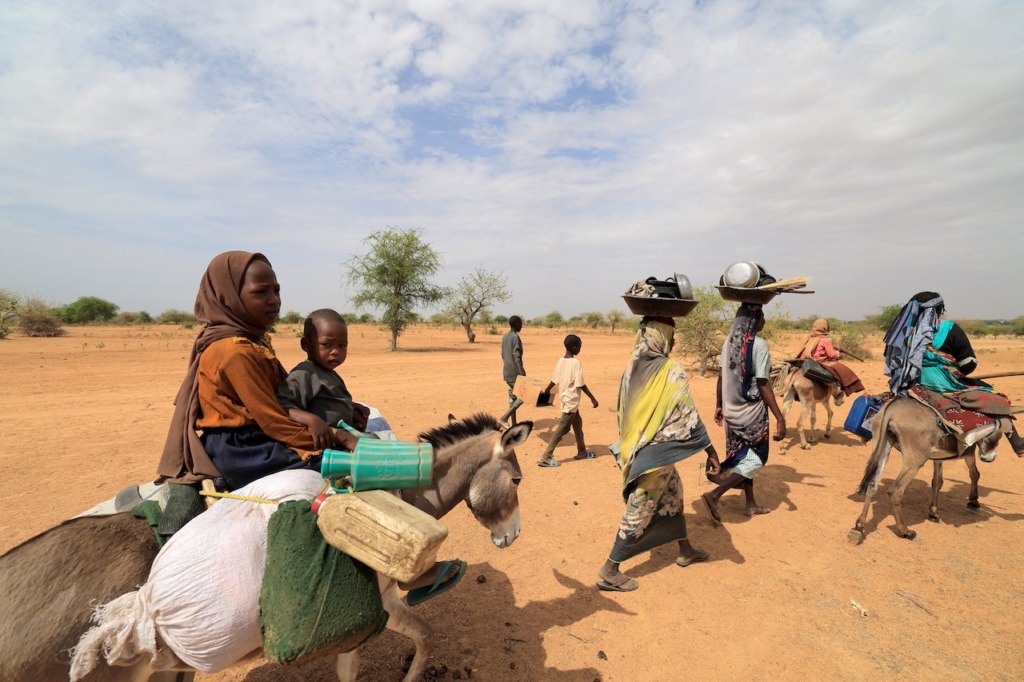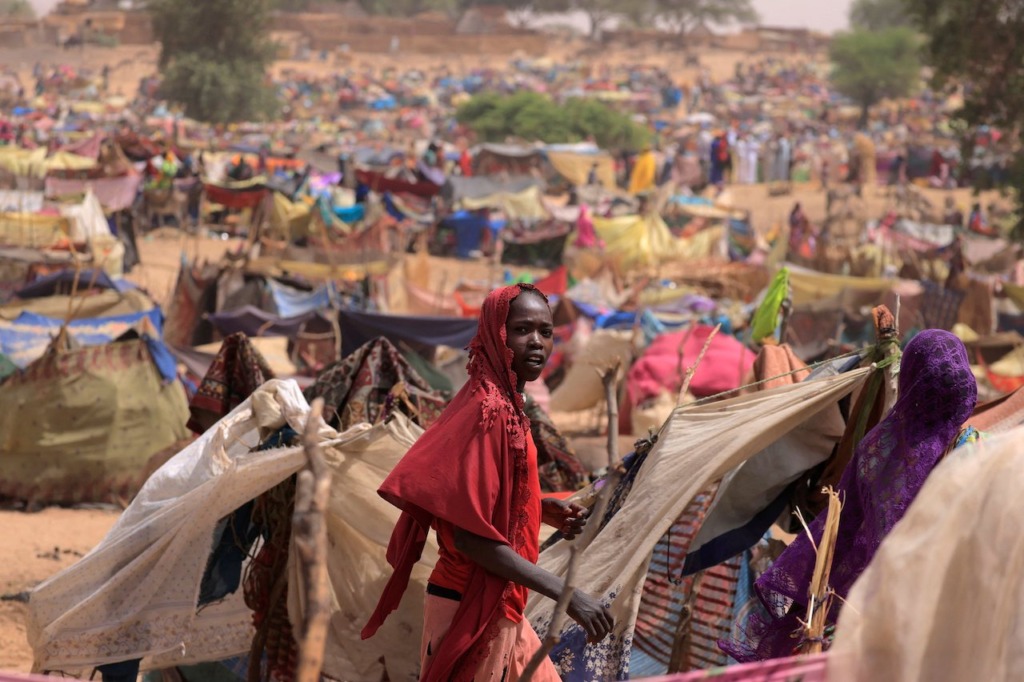(OSV News) – A Catholic leader in South Sudan is urging the international community to take a firm stand to end the conflict between the two warring sides in Sudan, as deaths and displacement continue to rise in the month or so since the conflict began April 15.
Archbishop Stephen Ameyu Martin Mulla of Juba spoke as the Catholic Church in his country – which Pope Francis visited in February – prepared to receive hundreds of refugees and returnees fleeing the fighting in the northeastern African country.
The U.N. refugee agency, UNHCR, estimates that since fighting began, nearly a million people have been displaced, the number of those internally displaced has risen to 730,000 and 220,000 have fled to neighboring countries. Over a million refugees lived in Sudan prior to the conflict and now they are hitting the road again, seeking safety in Chad, South Sudan, Egypt, Ethiopia and the Central African Republic.

“The (fighting) Sudanese people would listen if the message is serious. I know many people have made an appeal and they did not listen,” Archbishop Mulla told OSV News in a telephone interview on May 17. “I believe if the international community intervenes strongly, they would stop fighting.”
“For example, Saudi Arabia has leverage on the government of Sudan. The U.S has a greater power and influence on Sudan, together with the U.N., they can save the country from this destruction we are seeing now,” Archbishop Mulla added.
A deadly Sudanese war triggered April 15 has spread chaos across the predominantly Islam and Arab country. For one month, the regular army – Sudan Armed Forces (SAF) – led by Gen. Abdel Fattah al-Burhan, and the paramilitary – Rapid Support Forces (RSF) – commanded by Gen. Mohammed Hamdan Dagalo, also known as Hemedti, have traded heavy gunfire, artillery and aerial bombs.
The two sides have accepted several humanitarian ceasefire agreements and held peace in Saudi Arabia’s Red Sea city of Jeddah, but the fighting has not stopped.

The precise death toll is not known but it is in the hundreds of lives and thousands more have been injured. Families are still trapped in their homes without food, water and medicines, among other basic necessities, as soldiers fight in street battles.
“I am in touch with all the bishops that are in Sudan, including the archbishop of Khartoum and the bishop of El Obeid. The situation has devastated the church. Many churches are destroyed and looted,” Archbishop Mulla said.
“However, parishes that are outside Khartoum are safe. Port Sudan in the Red Sea, where the Archbishop of Khartoum is residing, is safe,” he said.
On May 13, six gunmen attacked a Coptic church in Khartoum, killing four people, including a priest and his son. On April 24, two rockets struck the premises of Mary Queen of Africa Catholic Cathedral in El Obeid Diocese. The blasts destroyed parts of the priests’ house and the cathedral’s main gate. According to Archbishop Mulla, the cathedral in Khartoum also has been vandalized and the house of the Comboni missionaries destroyed, after they were struck with rockets.
Reports from early May indicate that a Presbyterian church in Bahri, a district where most Christians in Khartoum live, suffered ammunition fire.
“All church properties have been taken by the armed groups. The markets have been looted and the church and its faithful are targets. The church in Sudan needs help from the international community,” Father James Oyet Latansio, the general secretary of the South Sudan Council of Churches, said in an interview with OSV News May 17.
In the capital of Sudan, Anglican Archbishop Ezekiel Kondo of Khartoum said in a short statement obtained by OSV News May 17 that RSF gunmen had occupied All Saints Cathedral and turned it into a (command) station. The gunmen broke the main gate, looted offices and stole vehicles of the diocese, including that of the archbishop, at gunpoint.
“We demand the immediate exit and withdrawal of these forces from the cathedral compound,” said Archbishop Kondo.
The fighting in residential areas was putting parishes in Khartoum in danger. Priests and other religious have congregated in the town of Al Masalma in the Khartoum district , according to Archbishop Mulla, and they will have to move farther away to South Sudan.
The U.N. said $3 billion was needed to provide urgent help to the people ravaged by war in Sudan.
Archbishop Mulla said the church was already providing assistance for the people who would enter the country from Sudan as returnees or as clergy and personnel.
“Any clergy coming back from Khartoum or the north will be integrated into the system of the church here in South Sudan. That is the clergymen, women and brothers,” he said.
He said Caritas branches in all dioceses were ready to welcome and help returnees start a new life in South Sudan.
“This is in line with the policy of the government. The government of South Sudan has said no (returning) refugees will be put into camps. They will be integrated directly to the communities, because they are returning back home,” he said, while explaining that the people are being cleared in Renk and Paloch towns and flown to their destinations.
The archbishop appealed for support to Caritas in South Sudan, saying that it was not strong enough to provide all the help that is needed.
“That’s why we are trying to appeal to all Caritas partners internationally to come to our help. Remember we are also refugees. We have been in war, our institutions were not strong and are not strong enough yet,” said Archbishop Mulla.
The world’s youngest nation gained independence from Sudan in 2011, and the two countries still have nationals living on both sides.

